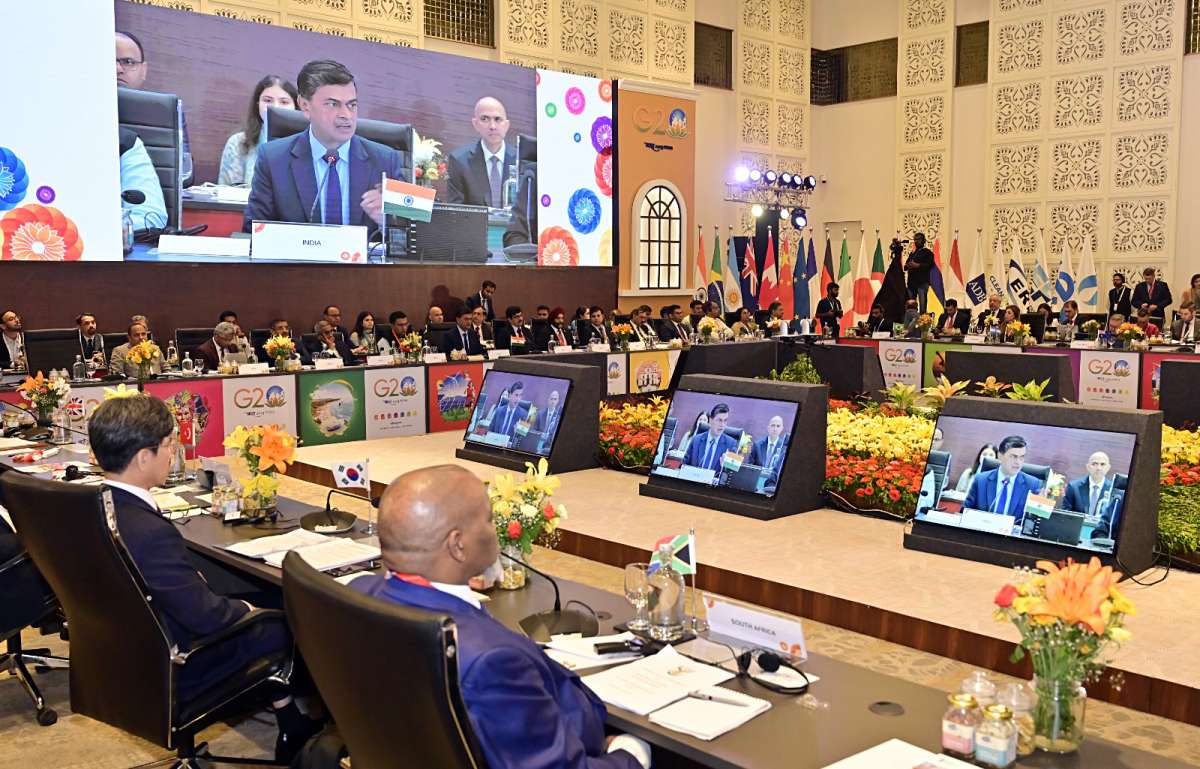The countries present pledged to work closer together to shape home-grown initiatives and promote more sustainable and equitable economic growth….reports Asian Lite News
Ministers from Africa and Asia have recommitted to exploring collaborative opportunities to advance access to affordable energy for their growing populations.
The ministers, who met on the sidelines of the G20 Energy Transition Ministerial Meeting (ETMM) held in Goa on Saturday also spoke of advancing the just energy transition agenda in their respective countries by building a South-South knowledge-sharing network. During the meeting, the ministers shared best practices and learnings in policy and regulatory design, technology co-development and transfer, scale-up and deployment of renewables, and private sector investment in energy infrastructure.
The countries present pledged to work closer together to shape home-grown initiatives and promote more sustainable and equitable economic growth. Moreover, the countries devised ways to engage in the global development architecture, going beyond their traditional role as recipients and contributing their energy and successful development experience for the benefit of the entire world.
Hardeep Singh Puri, Minister of Petroleum and Natural Gas and Minister of Housing and Urban Affairs of India said, “The Global South faces the challenge of addressing the trilemma of energy availability, affordability, and sustainability. Biofuels, Biogas, and Green Hydrogen hold great potential for energy sustainability and the scope for experience sharing in the Global South is immense.”
Participating ministers at the G20 energy meet reiterated that the countries in developing regions continue to play an increasingly important role in the world economy, and closer cooperation will enable them to engage better in global policy debates and shape the international agenda.
During the event, the Think20 India Secretariat Chair and Observer Research Foundation (ORF) President Samir Saran said, “India and Africa share similar challenges, opportunities, and developmental aspirations, making them natural partners. They must foster collaborative efforts to promote sustainable development, drive economic growth, and achieve a more prosperous and resilient future for their citizens and economies. One crucial aspect will be to ensure a stable and sustainable energy supply, enhance energy security and eliminate energy poverty.”
ORF a leading multidisciplinary think tank with centres in New Delhi, Mumbai and Kolkata and an overseas affiliate in Washington DC.
Through the India G20 Presidency, the countries promised to work with the G20 to close energy access gaps, promote energy efficiency, accelerate the adoption of clean technologies, and catalyze sustainable and concessional long-term finance for equitable transitions.
The 4th Energy Transition Ministerial Meeting (ETMM) of the G20 held in Goa seeks to provide an impetus to the priority of a clean energy transition, within the G20 and beyond.
The Powering Progress in the Global South session was hosted by the T20 Secretariat, ORF, and Sustainable Energy for All (SEforALL); with support from Bloomberg Philanthropies and the Global Energy Alliance for People and Planet.
Sustainable Energy for All (SEforALL) is an international organization that works in partnership with the United Nations to drive faster action towards the achievement of Sustainable Development Goal 7 (SDG7) – access to affordable, reliable, sustainable and modern energy for all by 2030 – in line with the Paris Agreement on climate.
Damilola Ogunbiyi, CEO and Special Representative of the UN Secretary-General (UN SRSG) for Sustainable Energy for All, and Co-Chair of UN-Energy said, “South-South cooperation represents a critical opportunity to achieve the 2030 Agenda for Sustainable Development. For the Global South to deliver on their aspirations for energy, climate and development, there is an urgent need for collective action. For example, South-South cooperation can help set up new financing mechanisms for energy transition and infrastructure development, and facilitate transfer of expertise, for the benefit of local populations, national economies, and the world at large.”
Think20 (T20) is an official Engagement Group of the G20. It serves as an “idea bank” for the G20 by bringing together think tanks and high-level experts to discuss policy issues relevant to the G20. (ANI)

